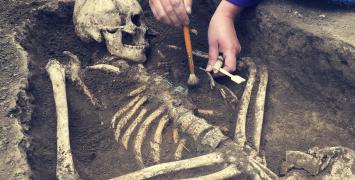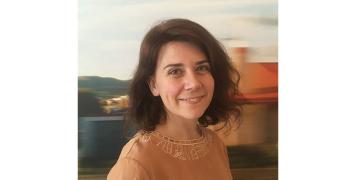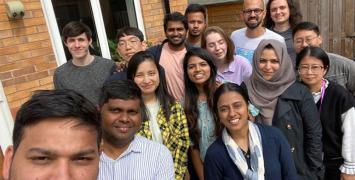Out of Africa: global collaboration benefits all

As part of a series of interviews with researchers who have moved from other continents and countries to work in Europe, we spoke to South African Eloise Marais.
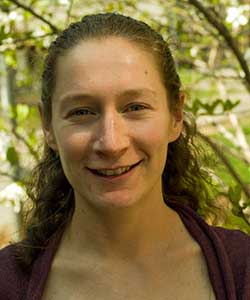
|
Your career started in South Africa, continued in the USA and today you are carrying out your research in the UK. Is mobility in your field beneficial?
My career in Atmospheric Chemistry only really started in the US. I conducted a research MSc in Chemistry in South Africa, then pursued a PhD in the US before gaining professional experience as a postdoc in the US. If mobility enhances your skills and expertise, exposes you to new ideas, new ways of working, or recently adopted methods in your research field (like machine learning), then it’s certainly beneficial. Short-term mobility to attend conferences and science meetings and participate in or lead workshops is also important for growing your network. The COVID-19 pandemic has shown us that we can adapt to working in conditions where mobility isn’t an option, but there are caveats to this. Those without reliable internet access feel isolated and networking at an in-person meeting is difficult to reproduce virtually.
What are the challenges and opportunities to working in an international environment?
After dealing with minor logistical challenges like internet connection, time zones, and ease-of-travel, funding is the largest barrier I’ve encountered. After dealing with minor logistical challenges like internet connection, time zones, and ease-of-travel, funding is the largest barrier I’ve encountered. This includes funding schemes that don’t cross political boundaries, very costly tuition fees for international students in the UK, limited funding opportunities for international students, and limited provisions in funding schemes for paying international researchers for their contribution to a project. Increasingly hostile borders also don’t help! This is a very important and concerning issue to me, as I supervise an international cohort of PhD students and postdocs.
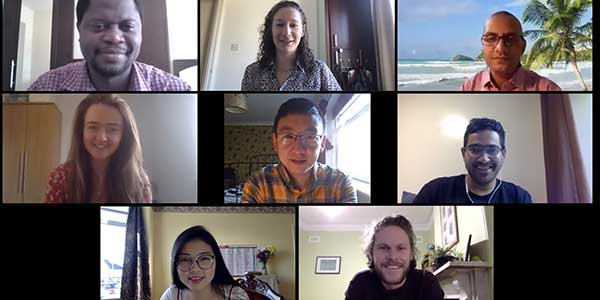
Could you describe your research to a non-scientific audience?
I use computer models and observations from instruments in space, on the Earth’s surface, and on aircraft to understand how we are affecting air quality, climate, our own health and the health of the planet. Some specific projects that my research group is working on include the environmental impact of the burgeoning charcoal industry in Africa, the health effects of future adoption of fossil fuels in Africa, long-term trends in air quality in tropical megacities observed with instruments in space, addressing long-standing and debilitating uncertainties in reactive nitrogen in the global upper troposphere, and whether rockets are the next air pollution frontier.
What was your motivation to apply for an ERC grant and what is your impression so far?
The style and format of the funding scheme are very appealing, as it provides funding for 5 years, it’s sufficient to build and establish a formidable research group. Unlike a lot of funding sources in the UK, it can be used to fund PhD students. The funding also provides the flexibility to innovate, be creative, and focus on paradigm-shifting research.
Funding that focuses on curiosity-driven research is increasingly difficult to secure, as more and more funding is for implementation of research findings in policy development or improving socio-economic circumstances. Funding that focuses on curiosity-driven research is increasingly difficult to secure, as more and more funding is for implementation of research findings in policy development or improving socio-economic circumstances. These are of course very important, but it is incredibly challenging for early career scientists to be competitive in these types of funding calls. We are just starting to grow our research teams, develop our research portfolios and gather the evidence needed to inform policy or commercialise our research.
To what extent does your ERC grant help your research plans?
An ERC grant is a tremendous boost to my research plans for many reasons. It’s an incredibly prestigious source of funding. It provides me with the resources I need to establish my own research group. It augments my standing in the UK and international research community. It gives me the opportunity to capitalise on other research opportunities to sustain my research group and satisfy my scientific curiosity.
Do you maintain research ties with South Africa?
I’ve actually established new research ties with South African scientists as a result of moving fields from laboratory chemistry in South Africa to theoretical computational atmospheric chemistry in the US. I’ve actually established new research ties with South African scientists as a result of moving fields from laboratory chemistry in South Africa to theoretical computational atmospheric chemistry in the US. My Master’s supervisor in South Africa, Prof Tebello Nyokong, will affirm without hesitation, I’m sure, that I was hopeless in the lab. I had a skill for breaking things and synthetizing blobs where others in the lab synthesized incandescent crystals.
I routinely collaborate with atmospheric scientists based at the Council for Scientific and Industrial Research (CSIR) in South Africa. Most recently, we’re collaborating to understand the influence of the dramatic and abrupt lockdown in South Africa on air quality.
Does the South African scientific community benefit from international collaboration?
For South Africans, a short-term placement in an international research group, or an international postdoc or research fellowship are great opportunities to learn how other research groups operate, gain new skills, and grow your network.
All scientific communities benefit from international collaboration. Research groups that promote and encourage this are most successful, as it’s been proven to lead to enhanced creativity and innovation. For South Africans, a short-term placement in an international research group, or an international postdoc or research fellowship are great opportunities to learn how other research groups operate, gain new skills, and grow your network. My research group benefits substantially from being international, as air quality knows no bounds, we utilise global datasets, and we focus on air pollution and atmospheric composition research topics that we focus on are inherently international.
What would you say to South African researchers who are considering applying for ERC grants?
My initial reaction would be
Go for it!
“Go for it!”. On a more practical level though, there are eligibility issues to consider, most obviously, being at an institution in an eligible country. Meet with people you trust and who are familiar with the funding scheme to discuss your research idea to determine whether it’s a good fit to the funding scheme and whether you need to do more to enhance your research portfolio (high-profile publications, collaborate with prominent researchers).
Then when it comes to writing the proposal, adopt all the important features of preparing a competitive proposal: start early, read the guidelines carefully, discuss your research with past awardees, get honest and critical feedback from peers. Importantly for an ERC proposal, be bold and ambitious in your goals.
You don’t have to win an ERC grant to work with an ERC funded research group! The ERC signed an "Implementing arrangement" with South African research funder the National Research Foundation (NRF) to boost opportunities for top South African scientists wishing to come to Europe and temporarily join research teams run by ERC grantees. See

